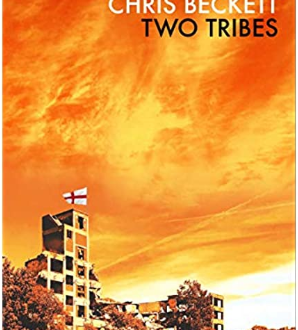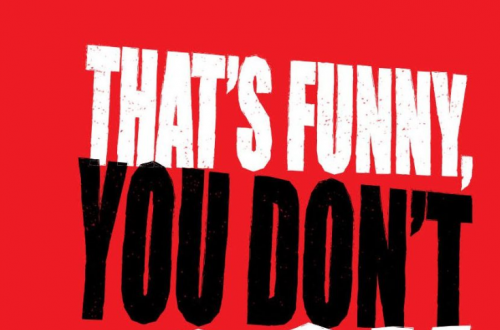Book Review
Nick Cohen, You Can’t Read This Book: Censorship in an Age of Freedom (Fourth Estate, 2012) 330 pp.
Nick Cohen has something to say and You Can’t Read This Book is the edifying result of his determination to say it. Cohen is a worried man; he worries about our freedom of expression. The wealthy can silence us with libel actions too expensive to defend, the courts can gag us, and if religious extremists threaten our lives, we can no longer rely upon the liberal left for support; we are not as free as we could or should be.
On February 14, 1989 the Supreme Leader of Iran Ayatollah Khomeini issued a fatwa, (a religious ruling) calling for the death of the British novelist Salman Rushdie because his book, The Satanic Verses, supposedly insulted the Prophet Muhammad. For this, Rushdie, “along with all the editors and publishers aware of its contents” deserved to die. “The attack on The Satanic Verses,” Cohen writes, “appalled liberals.”
Khomeini issued the fatwah so that no one would “dare insult the sacred beliefs of Muslims henceforth.” The Rushdie Affair was a defining moment in the history of our modern right to freedom of speech: it was when the tenets of Islam became a subject that not even the “edgy” alternative comedians of the 1980s, who had built a new genre of comedy around attacking traditional institutions like the monarchy or Church of England would touch. It was fear, pure and simple.
In September 2005, Jyllands-Posten, a Danish newspaper, breached the taboo and published cartoons depicting the prophet Muhammad – sacrilegious in Islam. After the cartoons were reproduced in newspapers across Europe at least 139 people died in the resulting protests. Salman Rushdie, however, was still alive; and to some, that was the problem. “If there had been a Muslim to carry out Imam Khomeini’s fatwa against the renegade Salman Rushdie,” said Hassan Nasrallah, leader of the Islamist group Hizbollah, “this rabble who insult our Prophet Muhammad in Denmark, Norway and France would not have dared to [publish the cartoons].” In his view there was not enough fear – but there was plenty: not one national newspaper in the UK dared to reprint the cartoons. The Rushdie affair had caused enough trouble; freedom of expression it seemed just wasn’t worth the grief. Meanwhile, in America, Cohen tells us that US networks banned images of Muhammad, by claiming that they were “liberals who wanted to display their respect and tolerance.” But as Cohen also tells us, this wasn’t entirely true. Matt Stone, a creator of Comedy Central’s South Park, was blunt. It wasn’t liberalism that stopped them: it was their fear of getting blown up. “That’s what you are afraid of,” he said. “Comedy Central copped to that, you know: ‘We’re afraid of getting blown up.’” Because of the silence surrounding the true reasons for censorship, Cohen argues, the enemies of liberalism are strengthened – twice over.
Even the supposedly judicious world of academia wasn’t immune. In an academic book devoted to the controversy, Yale University Press refused to republish the cartoons (bad enough in itself), but the reason Yale gave for its decision not to publish the cartoons was even more instructive: it didn’t want “blood on its hands.” And so the blame for violence was shifted from perpetrator to victim; a slippery line of reasoning akin to a teenage girl too scared to wear a short skirt in case she provoked her own rape, which she would be “asking for.” Cohen provides detailed descriptions of many of the cartoons, but his book does not reproduce them. I have no idea if Cohen would have liked them in the book, but the question is academic as the truth is that there is more chance of me having a night of wild sex with Natalie Portman than there is of Fourth Estate, Cohen’s publishers, agreeing to republish the Danish cartoons.
Betrayal. Ayaan Hirsi Ali was a young girl from a Somali family when she suffered female genital mutilation. It was just the beginning of a life she didn’t want and she eventually managed to escape a forced marriage, and flee to the Netherlands where she was granted political asylum. She learned to speak Dutch and graduated from a Dutch university. Rejecting her Muslim upbringing, she embraced atheism and liberalism and a political life. Highly critical of the treatment of women in Islamic society, she wrote the script of a short film on the subject, Submission, produced by Theo van Gogh; a classic story of female emancipation.
Then the death threats arrived. An Islamic extremist murdered Van Gogh and a warning was issued that Hirsi Ali would be next. Surely the left would support a feminist, secular woman who had suffered so much, and was now threatened with murder? No. Instead there were leftists and liberals who denounced her. She had, some argued, endangered the security of the Dutch people. A leading figure in the Dutch liberal party declared her a bogus asylum seeker, who should be stripped of her citizenship. “Rejected by the Dutch leftists and the Dutch Liberal Party,” Cohen explains, “she eventually found a home at the neo-conservative American Enterprise Institute in Washington DC…. when her natural allies abandoned her, their opponents were the only people who would take her in.” Here the reader may notice a certain similarity between Hirsi Ali and Cohen himself. Because of his own principled stance, refusing to see the triumvirate of the United States, Britain and Israel as an axis of evil, Hamas and Hizbollah as heroic resistance movements, and Islamists such as Tariq Ramadan and Jamal al-Banna as voices of moderation, he found his own ostracisation by many on the left. Cohen grew up on the left. In his 2007 book, What’s Left? he wrote of his belief, age 13, that “to be good, you had to be on the left.” He now writes for the Spectator and Standpoint. Fine journals but hardly bastions of left wing thought.
I do not agree with all Cohen’s opinions. He paints a distorted picture of the credit crunch of 2008 and I raised my eyebrows when reading his judgement that “Sensible countries should treat banks as if they were hostile foreign powers.” But he nonetheless uses the financial crisis to make a valid point: the difficulty employees have in speaking up against their employers. He does not use this acronym, but “CLM” comes to mind, “career limiting move,” the practical effect of criticising a superior. It is not simply hyperbole for Cohen to suggest that the workplace is a not a democracy but a dictatorship. The risks associated with criticising a boss can lead to loss of a job; the rewards, even if the criticism is justified, are not sufficient to make doing so worthwhile.
If internal criticism of a company’s policies or procedures is hard, going public is even harder. In some cases it can even lead to a prison sentence. While there is legal protection for whistleblowers, in practice it is not so simple. Even if a whistleblower acts morally and correctly, his career may be irreparably damaged as finding work elsewhere may be very difficult. Who wants to employ a troublemaker?
Cohen also inveighs against the English libel laws. Writers, editors and publishers in England and Wales operate in a legal jurisdiction where the mere threat of a libel action can cause panic, an apology and a retraction. The truth of what has been written is almost irrelevant; what matters, as Laurie Penny recently put it, is “whether or not it is actionable.” As an example, one can consider what happened when the Sovietologist, Robert Service, sent out an email in 2010 linking fellow academic Orlando Figes, to hostile online anonymous book reviews. The linkage was accurate, but difficult to prove. When Figes initially denied the link and got his lawyers involved, Service, in his own words, was left both “terrified” and “a gibbering wreck.” According to Rachel Polonsky, a third scholar, and someone with who Service had discussed the online reviews, Service was so “terrorised” by the possibility of libel action that he thought “he would lose his home.” Deborah Lipstadt successfully defended her case against David Irving – she had described him as a Holocaust Denier, a bigot and a falsifier of history – but not before the defence costs had approached £2 million. Service’s fears were not unfounded.
The costs associated with a libel action in England and Wales are so high, 140 times the European average, that “I’ll sue you… in England”, a line used in the American comedy show South Park, no doubt garnered recognizable laughs from its viewers. There is no certainty that full costs are awarded to the winner of a libel case or can be paid even if they are. Someone libelled might win their case but lose financially because the damages and costs recovered are less than the costs incurred. Cohen reminds us that “President Obama signed a law that stated that the US courts should not enforce the orders of English judges against American authors,” – an appalling indictment of English libel laws.
Gagging orders or “super-injunctions,” are also available to English courts to stifle free speech. But perhaps their example also offers hope. An English court ruled that Ryan Giggs, a Premier League soccer player, could not be named as the celebrity involved in extra marital sexual relationship with a glamour model and reality television star. Tens of thousands of users on Twitter made a mockery of the gagging order by promptly naming him. If the English courts think that a 13 year old sitting in an internet café in Hong Kong with an anonymous Twitter account cares about their rulings as to what can and cannot be published, they fully deserve to be derided.
But one can only shake their head in wonderment reading Cohen’s account of what happened to Paul Chambers as a result of an obviously non serious Tweet. Annoyed that snow had grounded all flights, he Tweeted: “Robin Hood airport is closed. You’ve got a week and a bit to get your shit together, otherwise I’m blowing the airport sky high!!” As Cohen correctly states, the Tweet is no more a serious threat than a comment such as “I’ll strangle my boyfriend if he hasn’t done the washing up.” The myrmidons of English justice thought differently. Chambers was arrested in his workplace, taken to court, found guilty of sending menacing messages over a public telecommunications network and fined £1,000. He lost two jobs as a result of the series of events. Readers might be forgiven for wondering at what point Voltaire’s Dr. Pangloss would show up to tell Chambers that this was necessary for “the best of all possible worlds.”
“It is not what you say but where you say it,” Cohen declares as important, before arguing: “The freedom the net brings is illusory if it confines writers to working under pseudonyms in obscure corners of the web. Writers who wish to be heard must break from the fringe into the mainstream by arguing for their ideas in the open.” My preferred formulation is that it is not where you say it, but who reads it that is important. This means that an obscure corner of the web can be an effective place to say something if it is read by an influential person who has the ability to bring the argument to a wider audience.
Now, it is true that it should be far more likely that someone writing in the mainstream will be heard by the influential than someone writing in the fringe, but it is not necessarily the case. Anonymous Twitter users in repressive regimes can attract the attention of writers and activists in the West. Nasrin Alavi, for example, brought together translations from the writings of Iranian bloggers in her 2005 book, We Are Iran, raising awareness of the issues facing Iranians.
A book is far more enjoyable if it is well written. Cohen can certainly write. You Can’t Read This Book is accessible and erudite. There are not many writers who, in a single book, can discuss the Peloponnesian War, comment upon Xenophon and Plato’s view of Socrates, give an opinion on Karl Marx’s beliefs in the inevitability of the proletarian revolution, and quote the Bible’s Leviticus, William Shakespeare, John Milton, Mary Wollstonecraft, William Wordsworth, Honoré de Balzac, John Stuart Mill, George Orwell, Saul Bellow and Joel Feinberg, while, at the same time, having the chutzpah to use the phrase, “fercockt Western putzes.” The late Christopher Hitchens, to whom the book is dedicated, was one; Nick Cohen is another.


